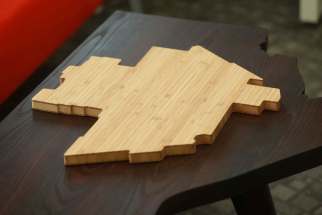Frustrated First Nations welcome promised review of gaming in Manitoba
Read this article for free:
or
Already have an account? Log in here »
To continue reading, please subscribe:
Monthly Digital Subscription
$0 for the first 4 weeks*
- Enjoy unlimited reading on winnipegfreepress.com
- Read the E-Edition, our digital replica newspaper
- Access News Break, our award-winning app
- Play interactive puzzles
*No charge for 4 weeks then price increases to the regular rate of $19.00 plus GST every four weeks. Offer available to new and qualified returning subscribers only. Cancel any time.
Monthly Digital Subscription
$4.75/week*
- Enjoy unlimited reading on winnipegfreepress.com
- Read the E-Edition, our digital replica newspaper
- Access News Break, our award-winning app
- Play interactive puzzles
*Billed as $19 plus GST every four weeks. Cancel any time.
To continue reading, please subscribe:
Add Free Press access to your Brandon Sun subscription for only an additional
$1 for the first 4 weeks*
*Your next subscription payment will increase by $1.00 and you will be charged $16.99 plus GST for four weeks. After four weeks, your payment will increase to $23.99 plus GST every four weeks.
Read unlimited articles for free today:
or
Already have an account? Log in here »
Hey there, time traveller!
This article was published 21/11/2018 (2574 days ago), so information in it may no longer be current.
News the provincial government is planning a moratorium on casino expansions pending a review of its gaming framework was music to the ears of various First Nations, who are hopeful longstanding legal tensions over gaming rights might be ironed out in the process.
During Tuesday’s annual speech from the throne, Lt.-Gov. Janice Filmon announced the government’s intention to pause further expansions until a review of the province’s “gaming strategy” can be completed.
What that will mean for the future of First Nations casino developments is unclear, but for many it offers a possibility for change.
“I think it’s a good idea. There should be a review by the province, because there are issues that need to be resolved,” Long Plain First Nation Chief Dennis Meeches said Wednesday.
Long Plain is one of seven Treaty 1 stakeholders in the future urban reserve that will be on the former Kapyong Barracks site south of Grant Avenue along Kenaston Boulevard. Meeches said that while it’s still early in the process, there has been some interest expressed about a casino or gaming centre.

“There would be interest to host a gaming centre eventually. We can’t discount a gaming centre, maybe not necessarily a casino. At this point I think talks of specifics are a bit premature,” Meeches said.
“But we’d be interested in hearing a timeline from the province. How long is this (review) going to take?”
Tensions on this topic have been simmering for some time, given the provincial government’s longstanding refusal to grant approval for a First Nations casino to operate in Winnipeg, which would compete with the Crown-owned and operated Club Regent and McPhillips Station casinos.
First Nations have maintained they have a right to access the gaming market in the city, claiming the government is breaching legal commitments by blocking them.
In October 2017, the Assembly of Manitoba Chiefs and Sand Hills Casino Resort Ltd. filed a lawsuit against the Manitoba government for breaching its commitments to First Nations and denying them access to the Winnipeg gaming market.
Four months later, the plaintiffs filed an amended statement of claim alleging further breaches of contracts, fiduciary duty and duty to consult, as well as negligent misrepresentation on the gaming file.
“The current system is not working and does not respect First Nations’ rights or fulfil the government’s obligations. So we welcome a review, to the extent that it seeks to address these broken contracts,” Assembly of Manitoba Chiefs Grand Chief Arlen Dumas said in a written statement.
“We will see what happens. We have always expressed our willingness to work in partnership with the province, but that willingness has not always gone both ways.”

During the throne speech, Filmon also said the province would make it a priority to “renew its consultation framework in order to ensure respectful and productive consultations with Indigenous communities.”
The provincial government’s intention to review both its gaming strategy and consultation framework left some First Nations stakeholders hopeful the issues might be addressed.
That would be welcome news to Peguis First Nation, which has long held an interest in relocating a casino from Opaskwayak Cree Nation to land near Assiniboia Downs. But that would require the provincial government’s consent.
In his written statement, Dumas also flagged the role gaming profits could play in helping improve Indigenous peoples’ lives.
“The Assembly of Manitoba Chiefs has always maintained First Nations have constitutional rights over gaming. We also have contractual rights arising from a 2005 agreement with the province to work together to use gaming to close the standard of living gap,” he said.
ryan.thorpe@freepress.mb.ca
Twitter: @rk_thorpe

Ryan Thorpe likes the pace of daily news, the feeling of a broadsheet in his hands and the stress of never-ending deadlines hanging over his head.
Our newsroom depends on a growing audience of readers to power our journalism. If you are not a paid reader, please consider becoming a subscriber.
Our newsroom depends on its audience of readers to power our journalism. Thank you for your support.











